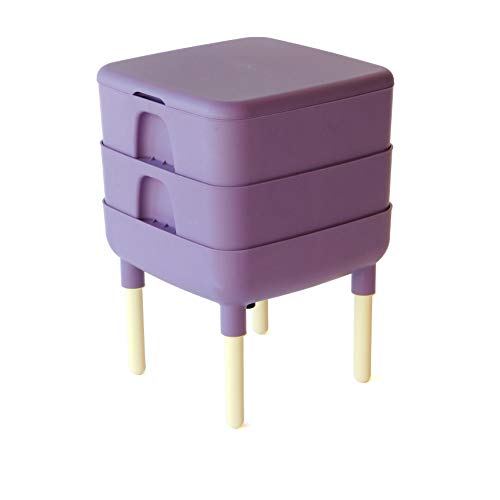Are coffee grounds good for plants? We reveal all about this eco-friendly plant fertilizer
Coffee grounds can have wide-reaching benefits in your backyard

Rachel Bull
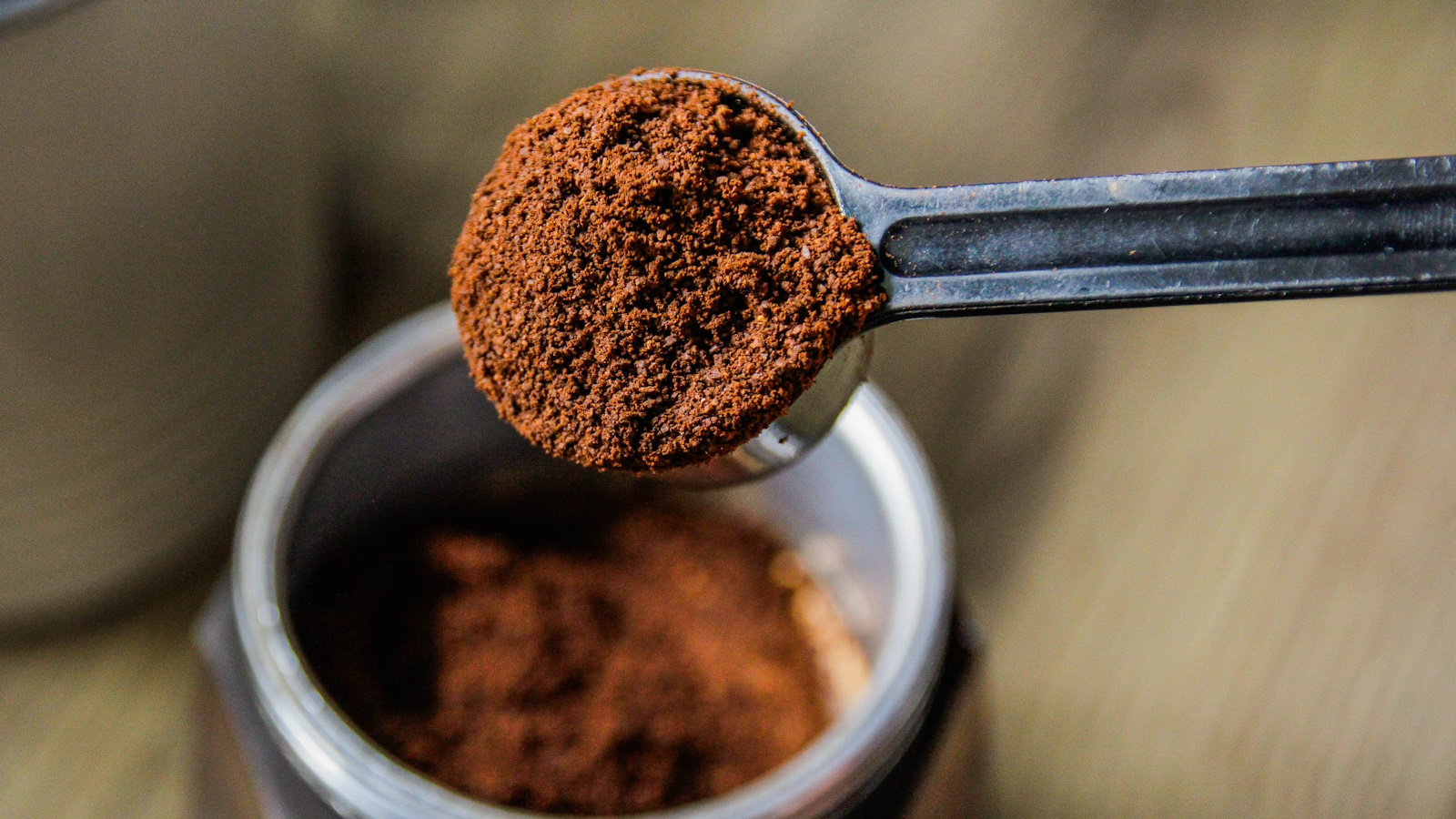
Design expertise in your inbox – from inspiring decorating ideas and beautiful celebrity homes to practical gardening advice and shopping round-ups.
You are now subscribed
Your newsletter sign-up was successful
Want to add more newsletters?

Twice a week
Homes&Gardens
The ultimate interior design resource from the world's leading experts - discover inspiring decorating ideas, color scheming know-how, garden inspiration and shopping expertise.

Once a week
In The Loop from Next In Design
Members of the Next in Design Circle will receive In the Loop, our weekly email filled with trade news, names to know and spotlight moments. Together we’re building a brighter design future.

Twice a week
Cucina
Whether you’re passionate about hosting exquisite dinners, experimenting with culinary trends, or perfecting your kitchen's design with timeless elegance and innovative functionality, this newsletter is here to inspire
Coffee has undeniable benefits when it comes to waking up the human body, especially during the pre-noon hour. However, its power is not limited to the kitchen. Instead, this caffeine staple is equally as impactful in the garden, where many gardeners are using coffee grounds to benefit their plants.
Used coffee grounds – left over from a coffee maker – contain a substantial amount of nitrogen, as well as potassium and phosphorus. These properties make them perfect for use the garden, such as in composting. It's an innovative way to make use of something that would otherwise have ended up in the trash.
However, its power doesn't end there. I have been using my waste coffee grounds on my houseplants and in the backyard for years, and I can vouch for the incredible (not to mention free) benefits coffee grounds can have. If sustainable gardening is your thing, here is everything you need to know about why coffee grounds are good for plants, according to the experts.
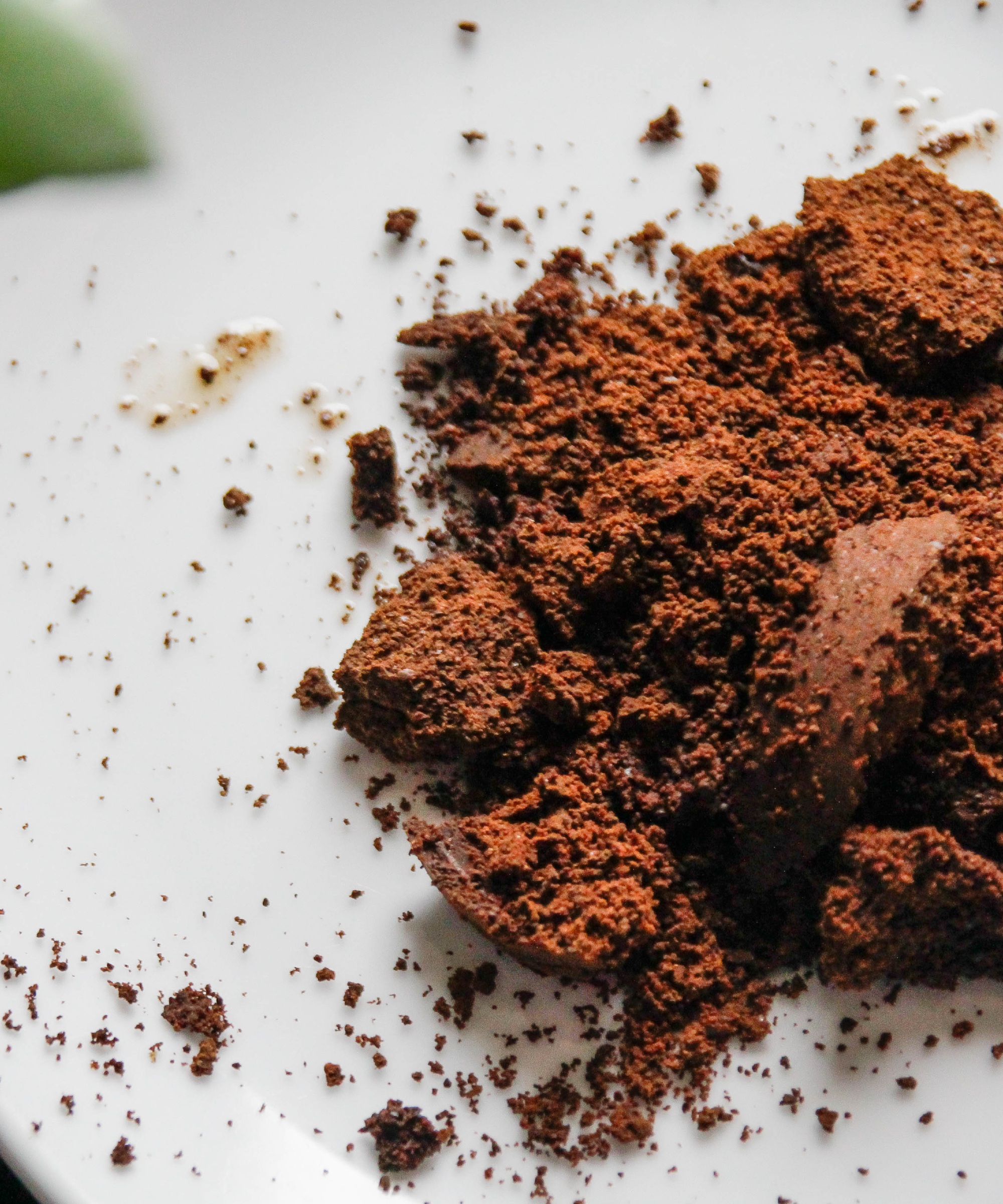
Are coffee grounds good for plants?
We have established that the answer to this question is a definite yes. But, what does the process involve? And does it work on all greenery? Find out how to boost your plants with these expert tips.
Using coffee grounds as a fertilizer
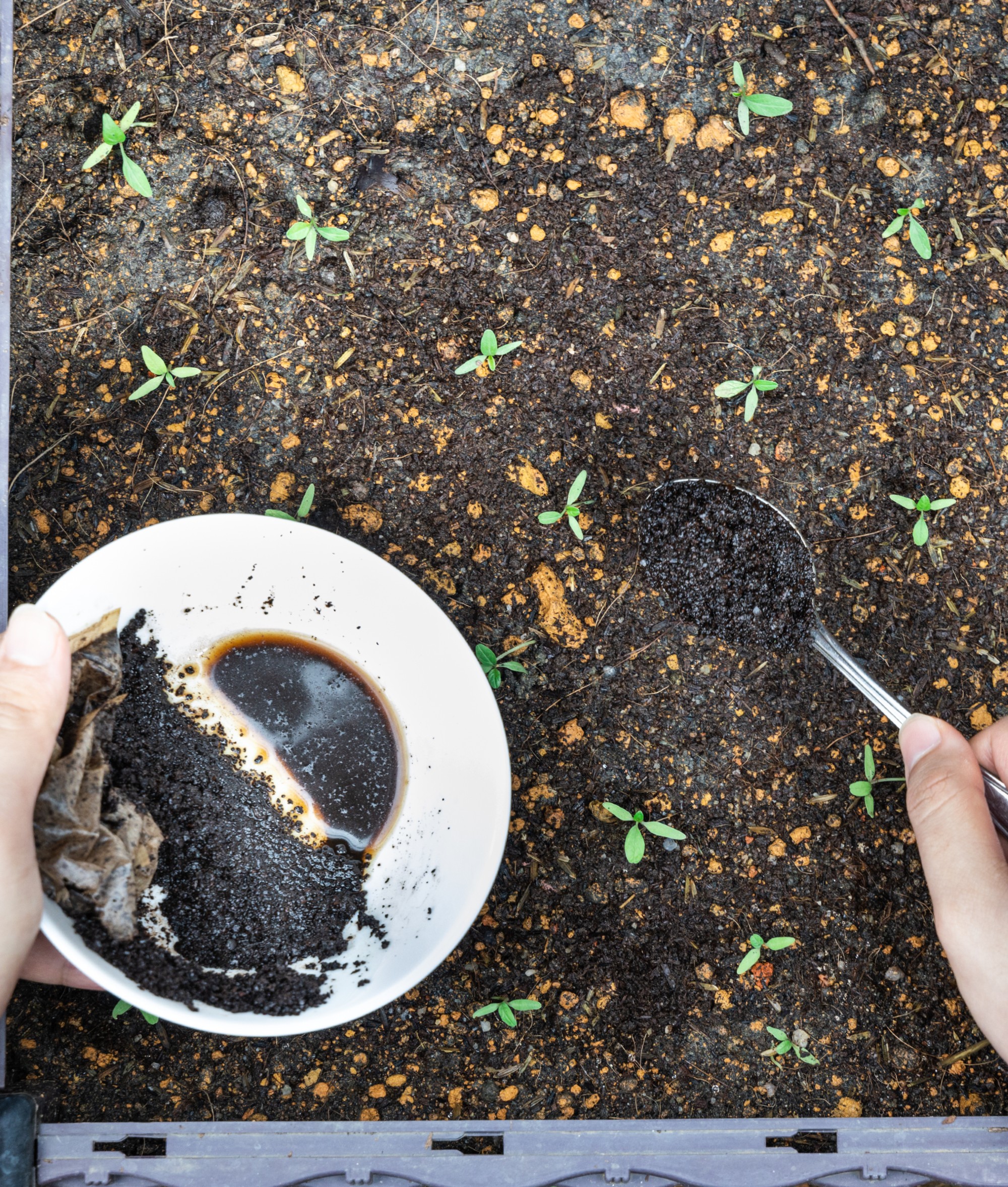
Did you know that your coffee grounds can be used as a slow-release fertilizer?
'I will often use coffee grounds as fertilizer,' says Thomas Rutter, former professional gardener and content editor on Homes & Gardens. 'Giving them to your plants is a great way to reduce household waste.'
Thom says to use coffee in soil, you can simply sprinkle the grounds directly onto your soil and lightly rake it in. 'Don't let them dry out on the surface, as this could act as a barrier to water reaching the soil beneath,' he says. Coffee grounds add organic material to the soil, helping water retention, aeration, and drainage.
Design expertise in your inbox – from inspiring decorating ideas and beautiful celebrity homes to practical gardening advice and shopping round-ups.
'Leftover diluted coffee can create a liquid plant fertilizer, too. Simply mix two cups of brewed coffee grounds with five gallons of water in a bucket overnight,' he adds.

Thomas is a Content Editor within the Gardens Team at Homes and Gardens. He has been working as a gardener and garden writer for several years. Whilst completing his Horticultural Traineeship at the Garden Museum, London, he was able to gain experience at many of the UK's world-famous gardens, including Sissinghurst, Lowther Castle, and Iford Manor. Following this, he worked for two private estates in Tuscany, Italy.
How to make compost with used coffee grounds
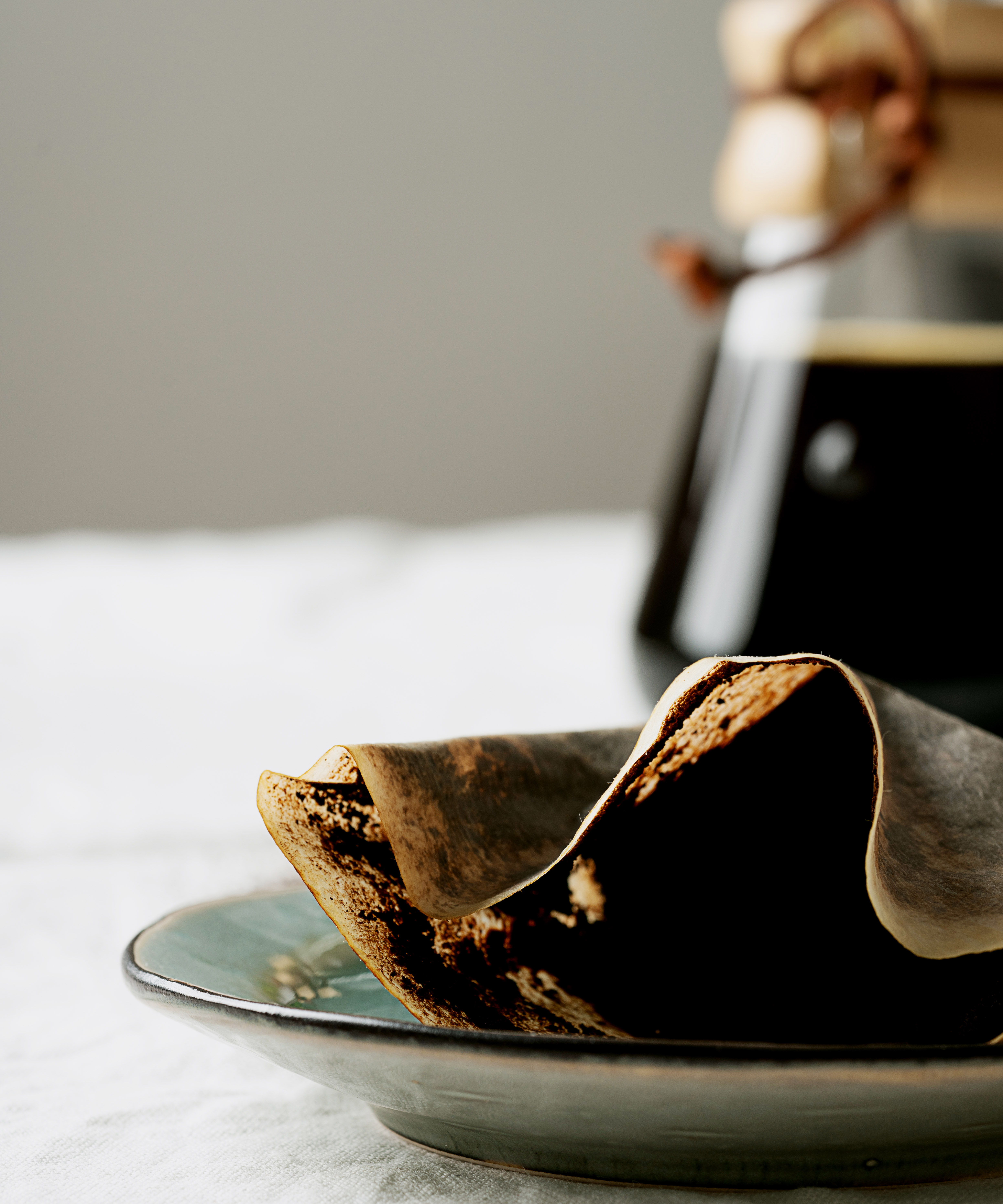
If you are investigating how to make compost, adding coffee grounds to your compost pile is a great idea.
To create the proper environment for composting to occur, gardeners need the right combination of 'green' and 'brown' material.
Greens are nitrogen-rich materials that are used by microorganisms in the soil for their growth and reproduction, and include fruit and vegetable peels, and used coffee grounds.
Browns are carbon-rich materials used to feed microorganisms and give them energy. Examples include dried leaves, twigs and newspaper.
If you practise vermi-composting, or want to learn more about how to use a wormery for compost, coffee grounds are a must as worms love them. For a small bin, add a cup of grounds per week to feed their addiction. Avoid adding too much at once because the acidity could negatively impact your worms. Paper coffee filters can even go in too.
Which plants like coffee grounds the most?
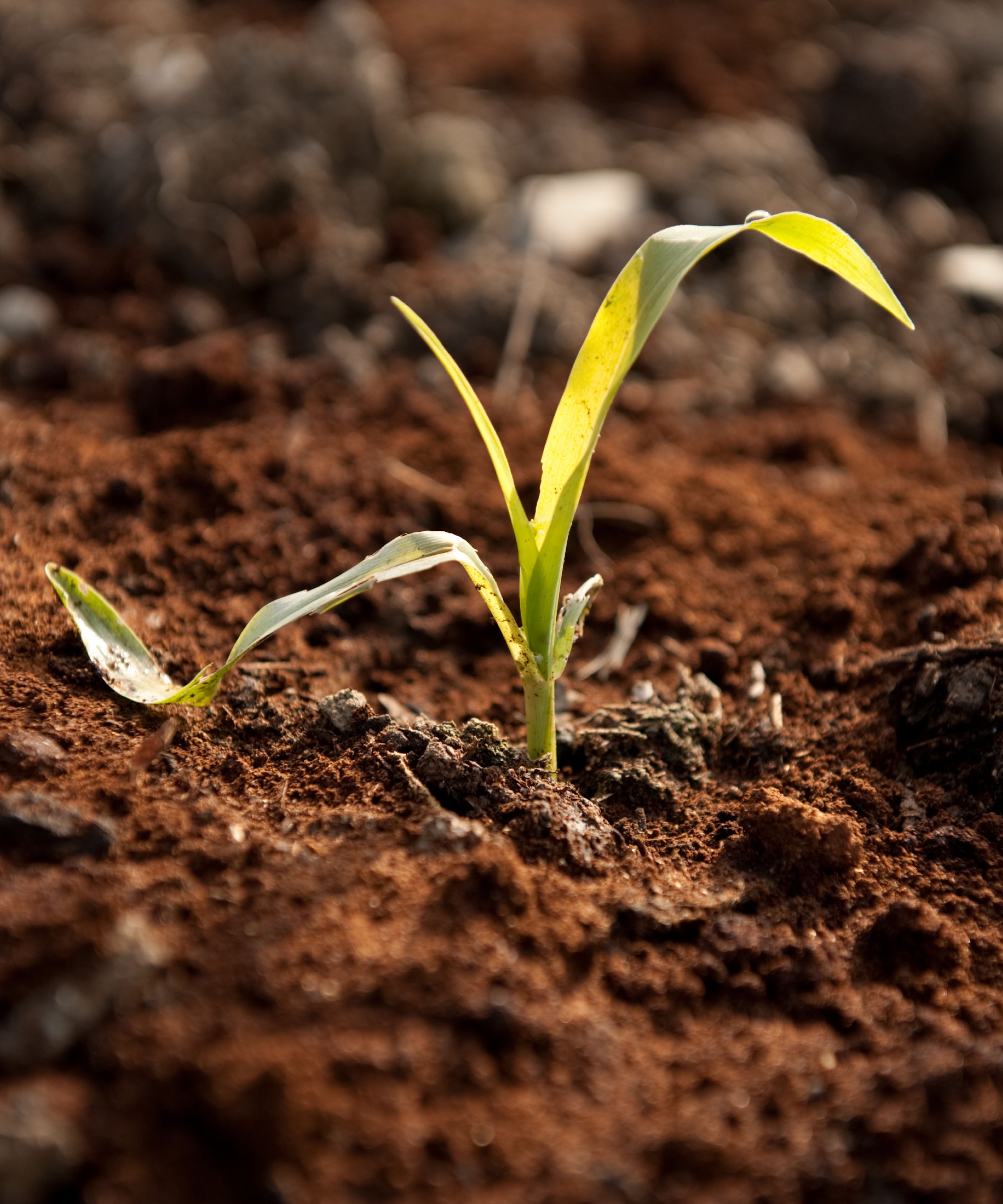
Acid-loving plants in particular love coffee grounds because they will lower the pH level of soil, causing it to become more acidic. Your roses, azaleas, gardenias, lilies, and hollies because they are acid-loving plants that will thrive best in the acidic characteristic of coffee grounds.
However, while coffee grounds have their undeniable benefits, Lindsey Hyland from Urban Organic Yield warns that this trick does not work for every plant.
'Tomatoes and rhododendrons are coffee-ground sensitive and may develop brown leaf tips if they come into contact with the grounds,' she says. So, if you're looking at growing tomatoes, it may be better to keep remnants of your brewed beverage away.
You should also try not to use coffee grounds in freshly seeded areas, as the caffeine residue can reduce germination in seedlings.
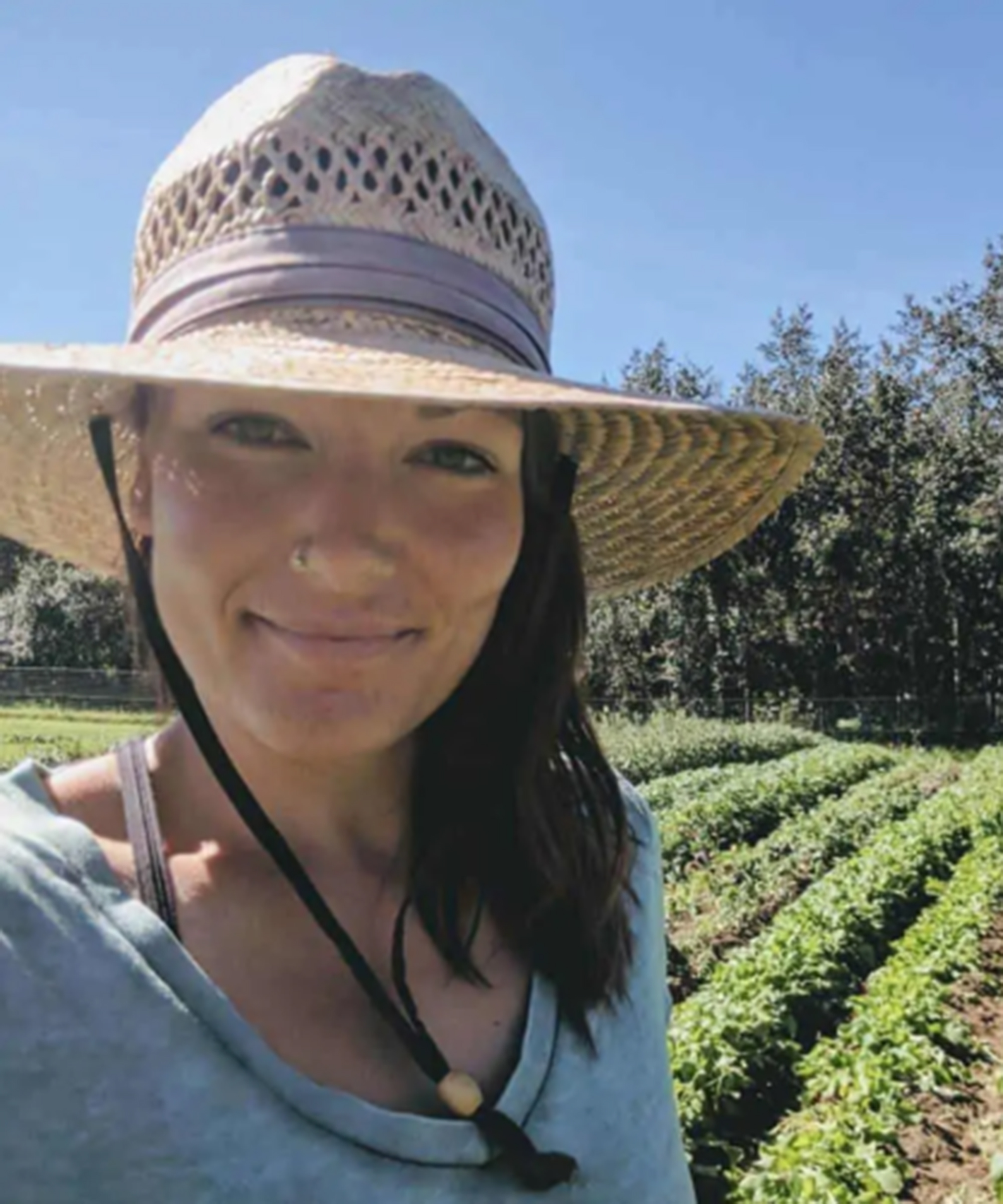
From outdoor food gardens to container planting, to aquaculture and hydroponics, Lindsey is an expert in a range of topics and is passionate about teaching you the basics in gardening.
FAQs
Are coffee grounds good for hydrangeas?
Your hydrangeas will definitely get a bloom-boost from your recycled coffee grounds. Coffee makes the soil more acidic and is packed with nitrogen, which hydrangeas go wild for, making them become super bright and colorful.
Are coffee grounds good for roses?
The high nitrogen content makes used coffee grounds a good growing companion for roses, as it helps take the pH from neutral to acidic – you can find out about how to test the pH of soil in our guide.
Some experts suggest that you can sprinkle your coffee grounds in the soil next to the plant, but others warn that you should be careful not to put too much on as the high nitrogen content could actually burn – and kill – them. Do not use more than a cup for each bush.
Alternatively, you could mix one cup of grounds with one gallon of water per bush and use this mix to water the plants so your roses are particularly bright and beautiful. And you can also use your coffee compost if you have made some.
Do coffee grounds deter slugs?
Coffee grounds are a great repellent for getting rid of slugs and snails. Simply spread the grounds around vulnerable plants to create a barrier against them. Slugs and snails will avoid travelling over the area because of the naturally abrasive properties of coffee: soft critters don't like rough surfaces.
Where can you get used coffee grounds?
It is possible to enjoy coffee's benefits, even if you're not an avid drinker. You can ask for used coffee grounds from neighborhood coffee houses, as they are likely to pass them along for free.
Coffee grounds are not just a useful product outdoors. They can be equally as beneficial as a fertilizer for houseplants - even for orchids, though watch how much you apply to make sure you don't impact drainage.

Ruth Doherty is an experienced digital writer and editor specializing in interiors, travel and lifestyle. With 20 years of writing for national sites under her belt, she’s worked for the likes of Livingetc.com, Standard, Ideal Home, Stylist and Marie Claire as well as Homes & Gardens.
- Rachel BullHead of Gardens
